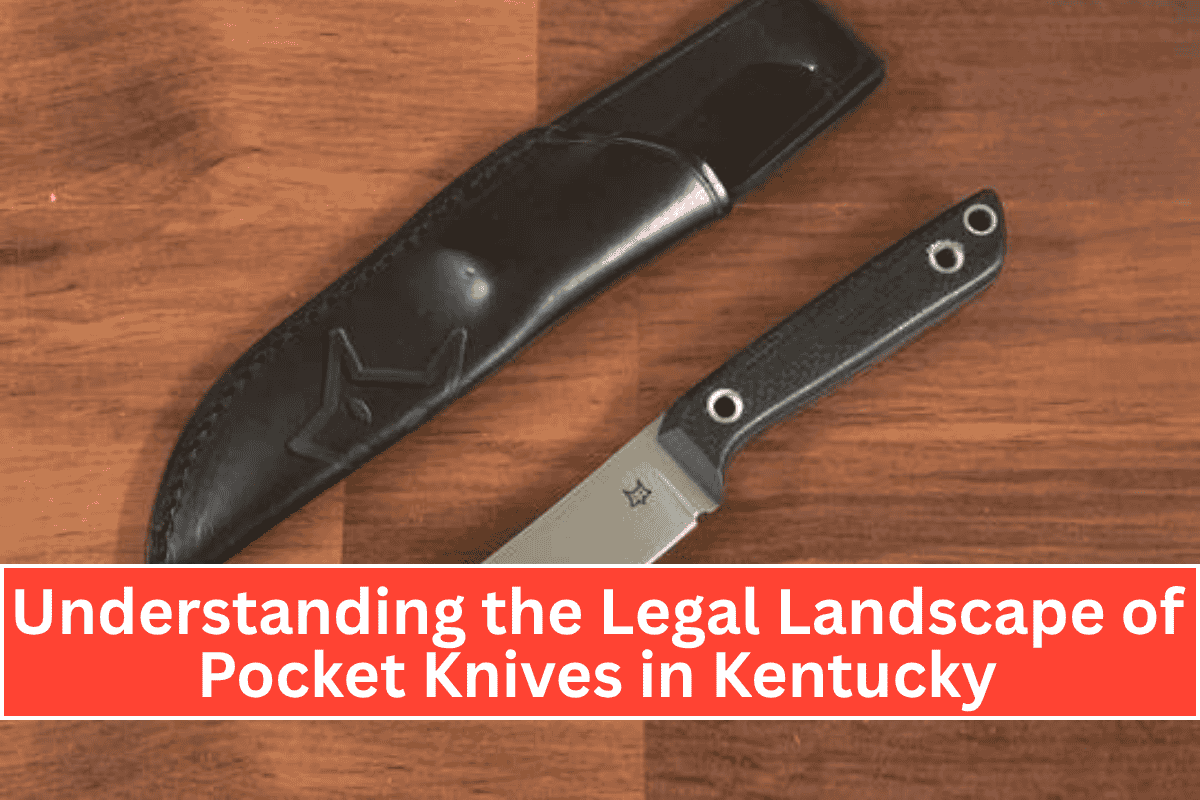In Kentucky, the laws surrounding knives are relatively open compared to other states. However, it’s essential for both residents and visitors to understand the regulations regarding carrying knives, especially when it comes to pocket knives.
The state classifies knives into two categories: those that are considered deadly weapons and those that are not. Depending on which category a knife falls under, there are different rules about how it can be carried. Here’s an in-depth look at Kentucky’s knife laws and what they mean for you.
Types of Knives That Can Be Carried Openly in Kentucky
In Kentucky, any type of knife can be carried openly, which means it can be worn in plain sight without any restrictions. This includes a variety of knives, such as:
Switchblades
Automatic knives
Ballistic knives
Dirks, daggers, and other stabbing knives
Disguised knives (e.g., those hidden in items like belts or canes)
Bowie knives
Balisong knives
Undetectable knives (which are made from non-metal materials)
There are no specific bans on any type of knife, so as long as a knife is carried openly, it is legal to carry it. However, there is an important exception: It is a Class D felony to carry any knife that is considered a deadly weapon on school property.
This applies whether the knife is carried openly or concealed. Violating this law could lead to serious legal consequences, including criminal charges.
Knives That Can Be Worn Openly or Concealed in Kentucky
While any knife can be openly carried, concealed carry rules are stricter for knives considered deadly weapons. According to Kentucky law, a knife is considered a deadly weapon unless it’s classified as an ordinary pocket knife or a hunting knife.
If you wish to conceal carry a knife that’s not an ordinary pocket or hunting knife, you will need a concealed carry permit. This permit is obtained in the same manner as a permit for carrying a firearm. The permit allows you to conceal carry various dangerous knives, such as:
Switchblades
Ballistic knives
Balisong knives
And others that fall under the definition of “deadly weapons”
However, if you store a knife in a vehicle in an enclosed compartment (like the glove compartment, center console, or seat pocket), you don’t need a permit, even if the knife is considered a deadly weapon.
This exception makes it easier for individuals to carry knives in their vehicles without needing a permit, as long as the knife is properly stored.
When Are Knives Considered Deadly Weapons in Kentucky?
Under Kentucky Revised Statutes §500.080(4), a deadly weapon includes any knife that is designed primarily as a weapon. This means knives like switchblades, ballistic knives, and daggers are classified as deadly weapons, while ordinary pocket knives and hunting knives are typically not.
A dangerous instrument, however, can be any item that is capable of causing serious harm or death in certain circumstances. Ordinary pocket knives and hunting knives may be considered dangerous instruments based on how they’re used.
For example, if someone uses a pocket knife in the commission of a crime or to harm someone, it could be viewed as a dangerous instrument even though it’s not officially considered a deadly weapon.
The importance of determining whether a knife is a deadly weapon is significant because it can affect the severity of a criminal charge. If a deadly weapon is used in the commission of a crime, the charge may be elevated. For instance:
Assault in the Second Degree (Class C felony) could be upgraded to Assault in the First Degree (Class B felony) if a deadly weapon was used.
Assault in the First Degree can lead to 10 to 20 years in prison, whereas Assault in the Second Degree carries a sentence of 5 to 10 years in prison.
Legal Defenses to Kentucky Knife Charges
If you are charged with violating Kentucky’s knife laws, you may have several potential defenses available:
The knife was not a deadly weapon: If your lawyer can show that the knife was used for a non-lethal purpose (such as for hunting, fishing, or other activities), then it may not be classified as a deadly weapon. This could lead to a reduction or dismissal of charges.
Concealed carry permit: If you have a concealed carry permit and were carrying a knife classified as a deadly weapon, your lawyer could argue that the permit allows for lawful concealed carry.
Knife stored properly in a vehicle: If the knife was stored in an enclosed compartment within your vehicle, you likely don’t need a concealed carry permit. Your lawyer may use this argument to avoid penalties.
Lack of intent to use the knife as a weapon: Kentucky law focuses on the intent behind the knife’s use. If your lawyer can show that you didn’t intend to use the knife as a weapon, this may provide grounds for a defense.
Kentucky’s knife laws are relatively lenient, but it’s important to understand the distinctions between knives that can be openly carried and those that require a permit for concealed carry.
Knives like pocket knives and hunting knives are generally exempt from strict regulations, while knives classified as deadly weapons are subject to more stringent rules. If you’re caught carrying a deadly weapon without a permit, or if the knife is used in the commission of a crime, it can result in serious legal consequences.
As always, it’s crucial to stay informed about Kentucky’s laws to avoid running afoul of them. If you find yourself facing charges related to a knife, seeking legal advice from a criminal defense attorney can help you navigate the situation and protect your rights.












